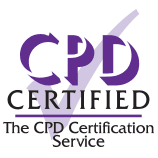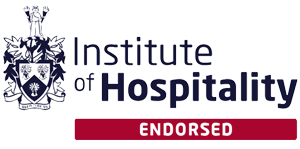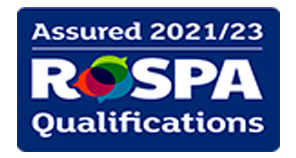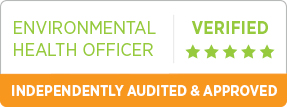
In food industry, safety and hygiene play a major role in business success. The Level 3 food safety training course is developed specially for managers, supervisors and other similar food handles in the catering sector to train them to enhance their professional skills and responsibilities, which include the critical usage of HACCP food safety management system.
The Level 3 food safety course makes learners know about statutory food hygiene practices and legal responsibilities and provides knowledge on critical controls which are implemented to make the food handling process as safe and hygienic as possible.
The course offers learners with a variety of written text, interactive practices and self-educative videos that provide students with an up-to-date knowledge on food safety law and compliance practices.
Some of the highlights of the course are given below:
- Same as RSPH and CIEH level 3 syllabus
- Similar to REHIS Intermediate Food Hygiene Syllabus
- Fulfils UK and EU regulations for food handlers
- Recognized by CPD and accepted by RoSPA
- Online course and assessment has no time limits
- Full audio voiceover
Who Should Take This Level 3 Supervising Food Safety in Catering?
This Level 3 Food Hygiene course can be joined by those who are responsible for offering hygienic food to customers. People who are working as food managers and supervisors in catering establishments which include eatery joints, hotels, restaurants, food court, takeaways, bars, cafes, fast-foot shops, mobile food vans, hospitals, kitchens, schools and colleges, can join this course to meet their career ambition.
The Level 3 Food Hygiene course is also well suited for catering shop owners who want to achieve a level 5 in the Food Hygiene Rating Scheme (formerly Scores on the Doors), aware more about Safer Food, gain knowledge on hygiene food packing, and understanding on implementation of an effective HACCP system.
As per the Regulation (EC) No 852/2004 on the food hygiene, all food handlers should get trained in food hygiene parameters in relation to their daily routine work activities. This Level 3 Supervising Food Safety course is aimed at making you compliance to this regulation by providing you comprehensive knowledge on food safety regulations. Students also made to understand how to promote best food safety practices in the workplaces and the effective ways to implement HACCP food safety management system. Also, for those who are working below the level of managers or supervisors then this Level 2 Food Hygiene and Safety training course is ideal to realize your dream.
Certification



This can be utilized for providing evidence for compliance and audit purposes.
All of our food safety courses are approved and recognized by the CPD Certification Service which confirms that the course is made as per the universally accepted Continuous Professional Development (CPD) guidelines.
This course is also approved by RoSPA, the Royal Society for the Prevention of Accidents for offering excellent and content-approved training.
Environmental Health Officer Approved
This course has been approved and audited by Environmental Health Officers who have reviewed the training materials independently and also verified the content for having necessary syllabus for the level 3 food safety training.

Content
The course is divided into 14 accessible, interactive modules and includes an assessment at the end:
- Introduction to Supervising Food Safety – why food safety is important, who is most at risk, the foods that cause illness, key terms and the role of a supervisor.
- Food Safety Legislation – current legislation, enforcing the law, fines and prosecution, due diligence, food business operator and employee responsibilities and investigating outbreaks of food-borne illness.
- Food Contamination – physical, chemical, microbial and allergenic contamination, cross contamination and detecting contaminants.
- Controlling Contamination – deliveries, food storage, stock control, recording and labelling, use by dates, best before dates, food service and delivery and the role of a supervisor.
- Micro-Organisms, Food Poisoning and Viruses –risks caused by spoilage organisms, bacterial growth (nutrients, moisture, acidity, temperature, time and atmosphere), spoilage microbes, food poisoning, food-borne illness and food-borne viruses.
- Non-Bacterial Food Poisoning – chemical food poisoning, metals, poisonous plants, poisonous fish and mycotoxins.
- Temperature Control – safe temperatures, food deliveries, fridge and freezer temperatures and hot and cold holding.
- Checking, Verifying and Recording Temperatures – measuring equipment, air temperature, how to take food temperatures and recording temperature checks.
- Waste, Cleaning and Disinfection – storing waste, waste removal, benefits of cleaning, supervising cleaning, six stages of cleaning, cleaning chemicals, cleaning work equipment surfaces and cleaning schedules.
- Pest Control – common pests, rats, mice, cockroaches, controlling pests and supervising pest control.
- Personal Hygiene – supervisor responsibilities, monitoring standards, handwashing, skin infections and wounds, sickness, protective clothing, hair, jewellery and smoking and eating at work.
- Training Staff – why training is important, levels of training, staff induction training, on-going training, staff training records and the role of management.
- Implementing a Food Safety Management System – Choose a HACCP team, describe the products and ingredients, identify the products’ uses and consumers, construct a flow diagram, confirm the flow diagram in the premises, hazard analysis, determine critical control points, establish critical limits, monitor critical control points, establish corrective actions, establish verification procedures and record keeping.
- Training Staff – traceability, tracking fresh food, product recalls, the role of a supervisor and inspections and audits.
By the end of this course learners will:
- Know the need for food hygiene and safety practices essential for food makers.
- Get the awareness about the importance of food safety guidelines and how it can be implemented.
- Awareness on food contamination possibilities and how to contain it.
- Understand how bacteria can make food unfit for consumption and how to control the risk.
- Gain the knowledge on safe temperatures for cooking, chilling and freezing food and understand how to mark temperature readings.
- Learn about cleaning schedules, managing waste and pest control methods.
- Know about maintaining personal hygiene in catering environments.
- Have awareness on safe and effective implementation of HACCP food safety management system.
Once you have read all training material through online, you will be ready to take an online assessment test. The test will have 45 multiple choice questions with a pass mark of 80%. Your answers are instantly assessed, so you will know whether you have secured pass marks as soon as you finish.

